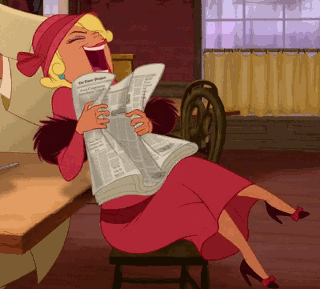The crack in the sky was no bigger
than a sliver, a hairline fracture, just enough for the ghost of a breath to
slip through. A tear in a world was a dangerous thing, a beacon for the wildest
creatures, hawk-eyed beasts and prowling scavengers alike.
At the sight of it, she dove, her
wingbeats gathering force. The air stirred in her wake, whistling a strange
melody that made those on the ground shiver and shut their windows when they
heard it.
But she was impervious to the scream
of the wind around her, or the fire in her bones. Her eyes were fixed on the
faint circle of light amid the undulating darkness. It was too deep into the
forest to be noticed by anyone who wasn’t looking for it. Trees huddled closely
into each other, guardians of a secret better off concealed.
Folding her wings, she set herself
onto the carpet of moss. It was pleasantly wet and moist, and she sucked in a
deep breath, letting the life of the forest fill her lungs. It was a stark
difference from the stench of rot and ruin she had breathed in no more than a
few minutes ago. Already, hope felt within reach.
She brushed off the remaining vestiges of her
glamour and watched as her form materialised into sight. Her skin,
uncomfortably tight, was parched from the journey and ravaged by the battle.
She stretched her aching wings before remembering what Astov told her about
this world and its earthbound occupants. With a resigned sigh, she turned her
wings invisible.
The forest was a tangle of gnarled
branches and creeping undergrowth, impenetrable as a heart. There was the
heartbreaking scent of things blooming and growing, living and dying, that used
to fill the air back home.
Astov would have stayed here if he could. She recalled the light that filled his eyes
whenever he spoke of other worlds and imagined lives, then pushed the thought
of him to the back of her mind before her traitorous heart could take over.
Through the lattice of branches, the
light from the market came through as flickering pinpricks, easily overlooked. She
cut like a blade of wind through the soggy mire of undergrowth, ducking from
the reach of branches.
The stench was the first thing she
noticed about the black market – its overpowering miasma of avarice and cunning
made her footsteps falter. She supposed it was to be expected of a black
market, and forced herself to brave its fumes and observe its workings.
While she had learned about the type
of currency used in this world, here she saw not a single dollar flashed.
Instead, the goods, displayed under the vendors’ keen gazes, were weighed and
measured before being traded. None of them needed introduction – those who
sought them knew what they were and those who didn’t had no business knowing.
There were the innocuous-seeming
stones and jars of coloured liquid and light. And then there was the macabre: claws,
feathers, teeth, skin. And bones, so many of them – ranging from the intricate
to the bulky and blatant, ones of the purest white to the duskiest grey – she
wondered how she might ever locate the one she was looking for.
There was no time to waste. Every
minute she lingered here was another minute carnage was created at home. She
blew like red death past the stalls, too intent on what she was seeking to pay
attention to the eyes that fell on her, or the conversations that bled away
wherever she passed.
When at last she came to a stop, it
was because of the gleam she caught sight of from the corner of her eye. She
found herself standing before a dimly-lit stall at the periphery of the market.
Nearby, a wall of trees stood guard.
A magus’ bones were eternal,
preserved by the magic they contained. It was why they cast their own glow even
in a badly lit stall like this, why you could hear music – a faint whistle like
the song of the wind – emanating from the ivory-white core of the bones. The
king had once said that magic was the only thing that could secure everlasting
peace and progress, but even his knowledge of magic could not save him from his
demise. Now that she – along with the others who were fighting the war at home
now – was one of the last few who possessed the knowledge, it was up to them to
guard it to their graves.
But their magic alone was hardly
enough to bring Astov back. The crown prince’s death remained a mystery – there
wasn’t even a body, only the long aching days of hope and dread, hope and
dread, that eventually settled into the numbing conviction that their new
leader was dead.
They had waited long enough to take
action, but now she was just a step away from bringing Astov back. A mage’s
bone was not enough; she needed an archmage’s. Bones from a leader of magic
would be so much more potent. Yet –
“You will not find what you’re
looking for here.”
At first, she wasn’t sure if that
statement was directed at her. But the man was staring right at her in a way
that made her folded wings twitch under her clothes.
He was one of the vendors, but not
from the stall she had set her eyes on. Instead, he sold bits of rocks and
stones – none of them precious – displaying them next to a rusty old weighing
scale. Under the single light bulb swinging overhead, his eyes were dense and
iron-grey, like the bullet Astov once showed her after one of his expeditions
to this world. She regarded the man with keener senses now. Someone with a
weapon in his eyes was not to be taken lightly.
He went on pleasantly as though she
had just inquired about his health. “You want to bring a loved one back, you'll
need something more than a pile of old bones.”
At once, she bristled. Mages were
the elite practitioners of magic. Those at home died trying to save the people
with all they knew. Yet, this man had simply dismissed them as though they were
worth nothing.
She filed her voice into something
able to draw blood. “These old bones
contain more power than you can ever understand.” She wondered why she was
standing there arguing with a man she hardly knew; he was only a vendor, after
all.
“If magic could save whatever it was
you were fighting for, you wouldn’t have come here.”
And it was this sentence that
stilled her before she could move on. Because it meant that he knew three
things – that she possessed magical abilities, that she was in the midst of a
battle, and that she was in desperate need of assistance – all within five
minutes of acquaintance.
She relented and turned her
attention back to him. The vendors from the adjacent stalls were preoccupied,
so she ventured further: “How can you tell?”
His voice was dry. “You conceal
those wings rather pitifully. They won’t go unnoticed in the day. Also, your
scars – they’re still fresh. You’ll need more than a selkie’s tears to heal
them. Four stalls down my left you will find an antidote that can heal you at
twice the speed. But he only accepts fangs as payment – the more exotic, the
better. As for your lover –”
“He’s not my lover.” She dipped her
head low to hide the fire in her cheeks.
“My apologies. I assumed you two
were romantically involved given how frequently your thoughts drift to him.”
“I said,” she snapped, meeting his
gaze straight on, “he is not my lover.”
He chuckled, as though indulging in a
recalcitrant child. “As for him, the magic required to bring him back using an
archmage’s bones will be too intricate, the process too arduous. From the looks
of it, you can ill-afford losing any more time.”
She frowned. “This is the only way.”
“There is always more than one way
if one looks hard enough.” He reached for a smooth rounded rock the colour of dried
blood. It sat in his palm like congealed liver as he held it out to her.
Her frown deepened as she stared at
it. “A rock.”
“A bloodstone,” he corrected. “A far
better and quicker solution to your problem. All you need is – as you can
probably guess – blood. Not just any blood, though. The blood of an enemy to
restore the life of a loved one.”
The blood of an enemy. Who? She had
many. But the one who topped the list had to be her. Whom she knew Astov was in love with. Her, whom Astov had come
to see on the sly (he covered his tracks well, but she knew him thoroughly
enough to find him here). Her, for whom Astov had likely died.
She was dizzy with rage – now a
dagger that she tucked close to her, the grooves on its hilt worn and familiar
– but she forced herself to focus on the conversation at hand.
“I suppose you want my magic in
return,” she scoffed. She had heard enough about Traders to know that they were
a mercenary bunch.
“No,” he said, spinning the stone in
lazy circles in his hand. “You will never give that up. Besides, what would I
do with all that knowledge?”
“What do you want, then?” She longed
to tear the stone out of his hand and be done with him, but there was more to
learn about the Trader – a lot more.
“Just your wings, love.” For the
first time since they spoke, his lips stretched into a broad crescent grin.
She took an involuntary step back,
but steeled her voice. “But how will I get back?”
The Trader raised an unsympathetic
brow. “Then I guess you’ll have to choose, won’t you?”
She speared him with a look that he
returned with relentless fervour. All the while, her mind buzzed and spun. She
could feel herself trembling precariously on the hinge of her choice. One word,
and the change was irrevocable. If she gave up her wings, Astov would live
again. He would restore peace to her home, and continue his father’s legacy. But
then she might never see him again; she would be stuck in his foreign world,
away from everything she had ever known.
But she hadn’t come here to return
in the same sorry state. If there was a chance to save her people that she did
not take, she could never live with herself.
When she lifted her gaze to meet the
Trader’s again, there was a renewed shine in her onyx eyes. Ignoring the sharp pain in her shoulder blades,
she said, “How do we go about this trade?”
Her wings twitched in protest, but
already she was imagining herself detached from them, forever earthbound.
*
When at last the Trader came to
collect his payment, it was with a blunt, rusted axe in hand. She hadn’t
expected to have her wings severed by such a crass instrument – so unceremonious,
almost disrespectful – but the stone was already in her possession and a deal
was a deal.
The axe whistled, low and hollow, as
it arced through the air.
She braced herself for the oncoming agony.
In her palm the bloodstone throbbed, a live thing squirming and writhing,
desperate to break free.





































